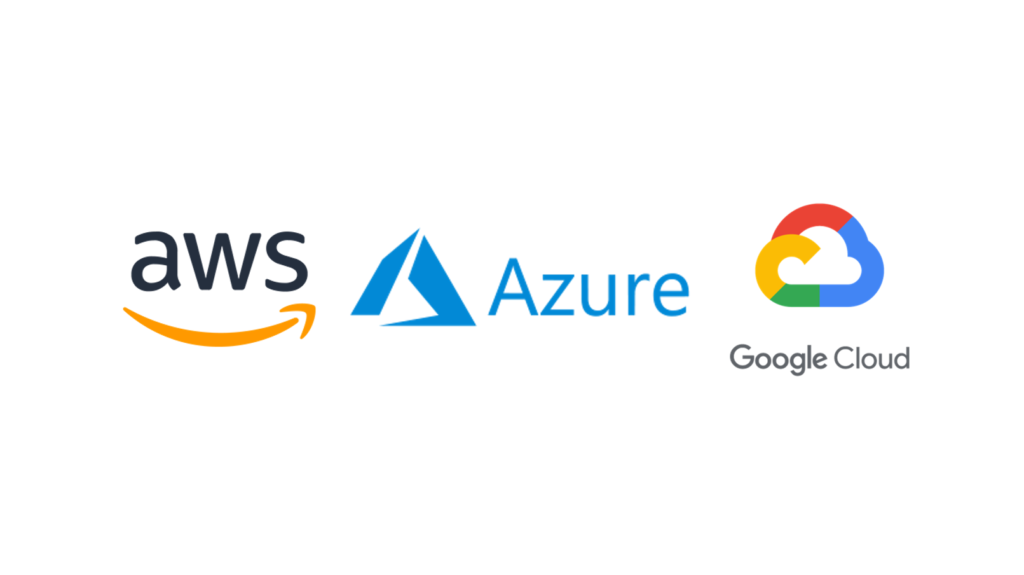We are true believers in the cloud computing. We prefer to work with Amazon AWS out of dozens, if not hundreds, of cloud providers on the market today. And rather than going into the never-ending holy war of how one provider is better than the other, in this post we will look at some of the reasons for why prefer to work with Amazon AWS.
If you are, on the other hand, looking for more detailed comparisons between different vendors, there are thousands upon thousands reviews online. Here are a few for you to start with:
- Full Scale: Cloud Computing Comparison 2019: AWS vs. Azure vs. Google (March, 2019)
- Cloudberry Lab: Azure VM vs Amazon EC2 vs Google CE: Cloud Computing Comparison (a bit dated, circa May, 2016)
- Guru99: Azure vs. AWS: Key Differences (no date, but seems dated)
- Computerworld: AWS vs Azure vs Google: What’s the best cloud platform for enterprise? (2019)
- ParkMyCloud: AWS vs Azure vs Google Cloud Market Share 2019: What the Latest Data Shows
- CloudHealth by VMware: Azure vs. AWS Comparison: Is Azure Really Catching Up? (March, 2018)
Now that we’ve got those out of the way, let’s look at some of our own reasons as to why we love and work with Amazon AWS.
Amazon AWS offers the most flexibility

Amazon AWS offers the most flexibility out of the top three cloud providers (the other two being Microsoft Azure and Google Cloud). Across the board, it has more services, more options, and more locations than other vendors. With AWS, we have more control over what, where, and how we deploy, how has access to what and when, how traffic flows, and how costs are controlled. For many companies, this flexibility creates complexity overhead. But for us, as a technology company, flexibility is an advantage.
Oversimplified, we see the top three cloud providers as follows:
- Google Cloud is preferable for standalone projects and developer workloads. These can be either in startups that build a particular product, or in the enterprises that want to shift only some of their infrastructure needs to the cloud.
- Microsoft Azure is a more general purpose cloud provider than Google Cloud. But most of its strength comes to light with companies who already heavily depend on the Microsoft technology stack.
- Amazon AWS is the most generic cloud provider of the three. It is nearly equally suitable across the board – from small teams and startup companies to medium and large enterprises.
Given that we work with teams and companies of all sizes, Amazon AWS grants us the most flexibility out of the three.
Bonus link: Microsoft Docs – AWS to Azure services comparison.
Amazon AWS offers the best pricing
Pricing models and budgeting are one of the most complex areas when it comes to any cloud provider. Especially so, when transitioning from the on-premise infrastructure to the pay-as-you-go approach. Cloud computing costs are affected by a wide variety of factors, such as geography, CPU utilization, memory utilization, storage size, I/O operations, internal and external traffic, spikes, capacity reservation, and many others.
There are numerous scenarios, where each of the cloud computing providers will come out cheaper either short- or long-term. However, for the needs of our clients and of our own, Amazon AWS seems to offer a significant price advantage.
Apart from all the usual cost comparisons, we benefit from the following three factors:
- Free tier. In a lot of scenarios, the free tier provides sufficient resources for our clients to get their feet wet in the cloud computing waters. Even those clients who require more resources than those covered by the free tier, benefit from the discounted pr.
- Tiny resources. The usefulness and efficiency of even the tiniest AWS resources surprises even us. Consider as an example, the t3.nano instance type, which features 2 vCPUs and 512MB of RAM at on-demand price of $0.0057/hour (EU, Ireland). These machines are more than suitable for Linux-based firewalls, load balancers, FTP servers, and even web and database servers for small companies. Reserving these for 1 or 3 years, drives the price down to $0.004/hour and $0.003/hour respectively. That’s under $3/month!
- High limits. Again, some of the AWS services limits are so high that small projects and companies never cross the threshold after which they need to pay. These include emails, message queues, monitoring, and other often non-vital but useful services.
Support, documentation, and community
Even though we are a very young company, our team members have been using Amazon AWS for years, both in previous jobs and for personal projects. Over the years, we came to appreciate AWS support, documentation, and community. For us, these are vital components of powerful technology stack.
Overall, Amazon AWS works so well that across our team there have only been a few dozen cases where we needed support. But everyone of us that had that experience, praised it highly. It is available, it is immediate, and it is very effective. As technical people, we especially appreciate the complete lack of “did you try turning it off and on again” non-sense. Not a single time we heard “please hold” or “let me transfer you to my colleague”. Simple, fast, and straight to the point – that’s our universal experience with the Amazon AWS support. A ticket with unique identifier is created for every issue, making it trivial to follow up and refer to. All phone communications are traced and recorded on the ticket, making it very easy to share with the rest of the team. And problem resolution has never taken longer than just a few minutes.
AWS documentation is some of the best out there. We understand how it might be overwhelming for new users and non-technical people. But for us, experienced technical people, it’s a great resource to learn from and reference to.
And, judging by the size and quality of the community, we are not alone. There are numerous blog posts, tutorials, forums, videos, and tools that make our lives a lot easier when dealing with any issues and challenges of the wide range of Amazon AWS services.
Competitive advantage on the local market
Last (for this post), but not the least, is the competitive advantage that Amazon AWS provides us for the local (Cyprus) market. There are quite a few established companies here that help businesses with their cloud computing needs. But practically all of these are working with the Microsoft Azure. The main reasons for this are probably:
- Decades long heavy reliance of many businesses on the Microsoft products, such as Office, Exchange, Active Directory, SharePoint, and Navision.
- Microsoft’s local presence. Unlike Amazon and Google, Microsoft has an established office in Cyprus, with many of its representatives work hard on maintaining and expanding Microsoft’s market share.
With Amazon AWS we are able to offer another cloud option, as well as avoid heavy competition with the larger and more established technology companies.
